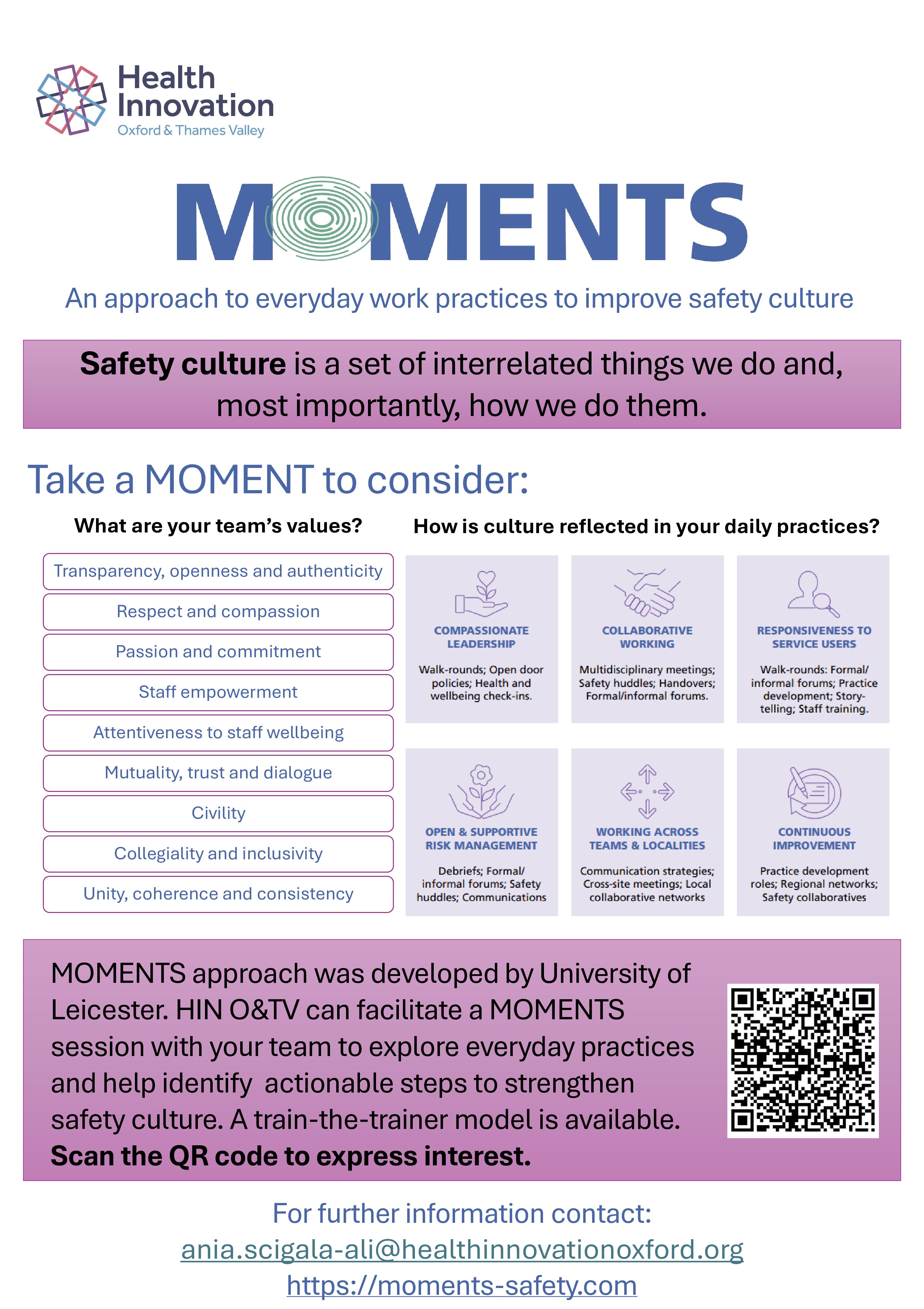Summary
The Perinatal Culture and Leadership Programme (PCLP) is a national initiative led by NHS England and supported regionally by Patient Safety Collaboratives (PSCs). It aims to improve the quality and safety of maternity and neonatal care by fostering inclusive leadership and a positive workplace culture.
Health Innovation Oxford and Thames Valley (HIOTV) supports maternity and neonatal teams to build psychologically safe, compassionate and collaborative leadership — helping staff feel valued and supported, and improving outcomes for women, birthing people, babies and families.
At its heart, the programme focuses on improving the conditions in which perinatal staff work, recognising that a healthy workplace culture is vital for safe, high-quality care. By aligning leadership behaviours with the values of excellence, collaboration and continuous improvement, the programme helps create environments where teams can thrive and deliver exceptional care.
Background
National reviews, including the Ockenden and Kirkup reports, highlighted that poor leadership and unsafe workplace cultures were contributing to avoidable harm in maternity and neonatal care. In response, NHS England launched the PCLP in 2022 to support trusts in developing positive, inclusive and psychologically safe leadership cultures.
All relevant NHS trusts in our region have taken part in three structured phases:
- Phase 1: Perinatal leadership team development
Multi-professional leadership teams — including directors or heads of midwifery, obstetric and neonatal clinical leads and operational managers — participated in regional workshops to build a shared vision and improve team collaboration. - Phase 2: Culture diagnostics
Trusts used the SCORE survey to explore local team culture across domains such as safety climate, burnout and engagement, identifying areas to strengthen. - Phase 3: Cultural conversations and action planning
With coaching support, each trust held structured team conversations to reflect on the culture survey results and develop tailored action plans.
What we are doing
In Phase 4 of the PCLP, NHS England has asked PSCs to continue supporting perinatal leadership teams in creating the conditions for a positive safety culture and continuous improvement.
HIOTV is building on the successes of earlier programme phases by offering practical, tailored support to trusts across the region. This includes:
- Understanding local needs: Collaborating with perinatal leadership teams (PLTs) to reflect on survey insights, diagnostic findings and local challenges to identify priority areas for change.
- Aligning with strategic goals: Helping teams integrate cultural improvement work with organisational objectives and national priorities.
- Helping put plans into practice: Providing guidance, tools and coaching to support the meaningful and sustainable delivery of local improvement plans.
- Developing change teams: Supporting the creation and development of local change teams through workshops and tailored coaching, adapted to the specific context of each Trust.
- Measuring and monitoring progress: Offering QI coaching to support the development of practical metrics and feedback mechanisms that assess impact and sustain progress.
- Enabling shared learning: Facilitating collaboration across trusts and Local Maternity and Neonatal Systems (LMNSs), including opportunities for culture coaches and senior leadership representatives to connect, share challenges and learn from one another.
- Delivering ‘Train the Trainer’ sessions for perinatal staff:
- MOMENTS approach sessions
- Cultural Conversations training
Resources
More information for MOMENTS https://moments-safety.com/
NHS Future Community of practice for culture coaches NHS Future Local Transformation Hub
Further information: ania.scigala-ali@healthinnovationoxford.org


